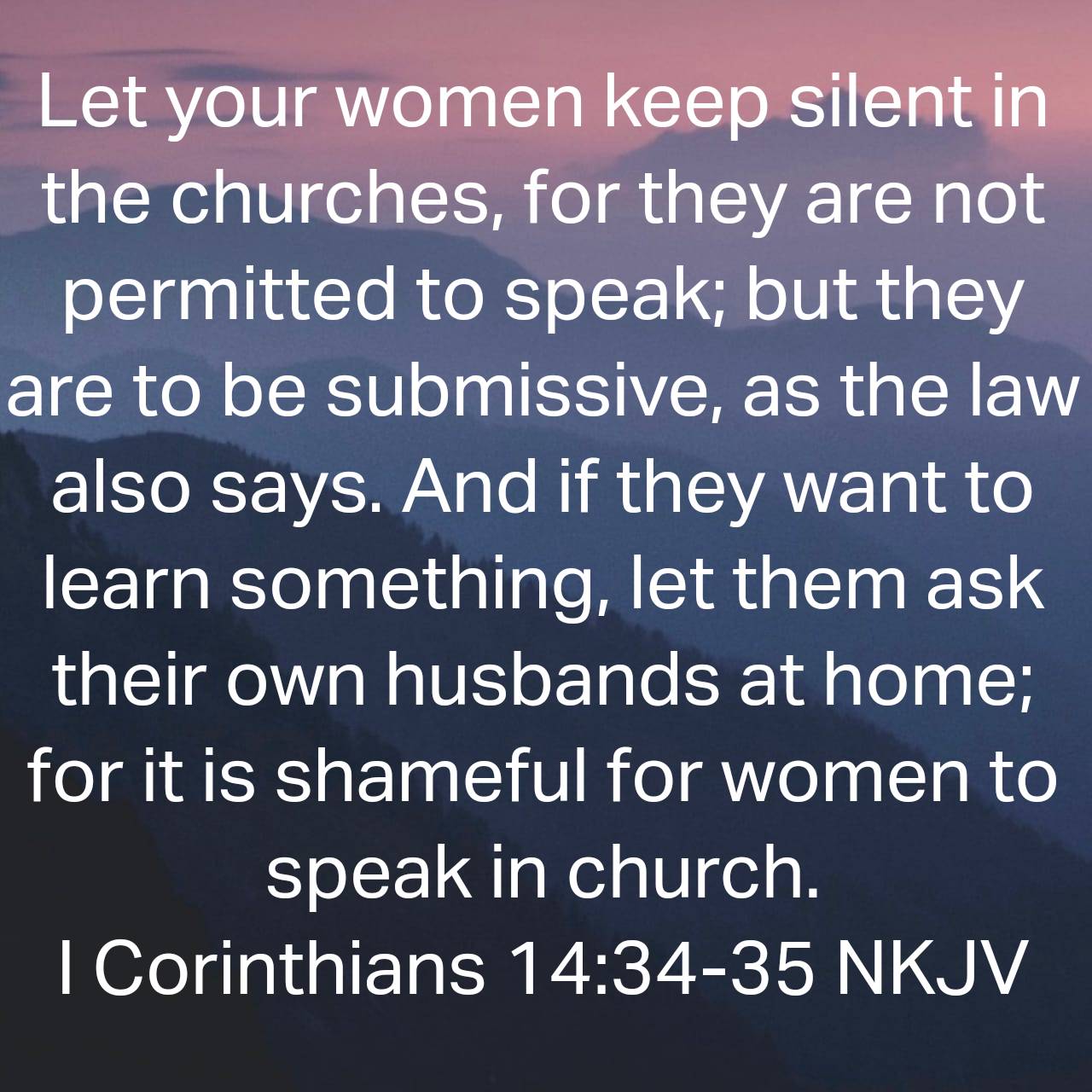
Should Women be Quiet in Church?

Is Paul really telling women to keep their mouths shut in church?
There are some denominations that make a big deal of this. They don’t allow women to take on a leadership role of any type. They aren’t allowed to preach or teach. They aren’t allowed to serve as elders. And mostly, they aren’t allowed to have an opinion that matters.
Generally, denominations that take this stand will make an exception and allow women to teach the children, teach other women, or serve in some subordinate role that doesn’t have much prominence, but they will tend to have a cow if her position puts her into a position where she is speaking to adult men.
It’s an inconsistent position, but I’m only reporting what they do. I’m not telling you it’s right.
Then there are denominations that ignore this passage and let women do pretty much anything they want to do. But they take this stand by claiming that Paul was addressing something that was cultural in the local Corinthian church, but is not universally applicable to all churches.
I’m not sure where they get this opinion, and usually they aren’t either. But again, I’m only reporting what they do. I’m not telling you that they’re right.
So I hope by now you’re wondering what this passage is really saying.
And this is an instance where I wish that every Christian was encouraged to learn some basic Greek language, which is the original language that the New Testament was written in.
Why? Because this is a glaring example of the problem with translation. We are at the mercy of the translators ability to get inside the mind of the original writer. And yet translators are not blank slates when they are translating. They all have some preconceived theological opinions that they carry into their translation.
Stick with me and I’ll try my best not to get too technical here, but understanding the original language is the only way to explain away the confusion that we get in the majority of our English translations.
In Greek, there is only one word for woman and wife. And there is only one word for man and husband. I must use the context of the conversation to determine whether we are speaking about a man and woman, or whether we are speaking about wives and husbands.
Now do you notice in our passage that the translators use “women” for the female part, but “husbands” for the male part? This is inconsistent! It’s like using a mixed metaphor.
Paul is either speaking to us about women and men, or he is speaking about the relationship between wives and husbands. This is not a mix and match thing.
Now he says that this submissive relationship is commanded in the Old Testament Law. And where in the Law does it say that a woman should be submissive to all men, or in particular, to someone else’s husband?
It doesn’t! A wife is to be submissive only to her own husband. She is NEVER placed under the authority of all men.
The context demands here that the female word should have been translated “wives.” Not women.
What is Paul REALLY saying in this passage? He’s telling all WIVES that the main church service is not the place to work out all your family issues.
Do that at home!
This passage has absolutely nothing to do with forbidding women from preaching or teaching in church.
